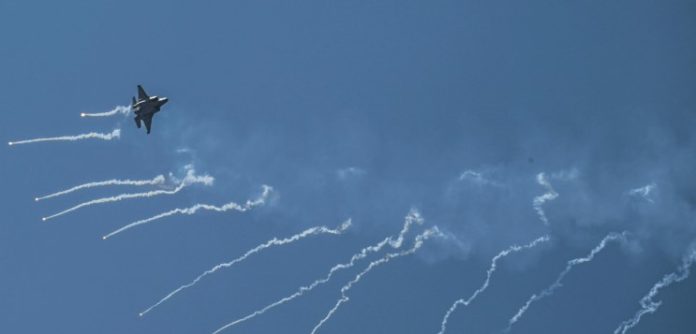The American magazine National Interest highlighted an attempt by the Yemeni Armed Forces to target a US F-35 fighter jet—raising questions about the capabilities of one of the most advanced aircraft in the American arsenal.
In a report published on Friday, the magazine noted that while Yemen’s air defense systems are relatively simple, they are effective, precise, and capable of rapid movement and sudden deployment in unexpected areas. As a result, countering these air defenses proves difficult, as early warning systems and advanced US equipment struggle to detect and plan against them.
National Interest warned that the attempted targeting of an F-35 by Yemeni air defenses signals grave consequences should conflicts escalate with other major powers employing similar tactics.
The magazine emphasized that possessing more expensive and advanced weapon systems does not guarantee lasting success, as low-tech systems can significantly hinder the effectiveness of high-tech ones.
The Gaza war has reignited wider regional tensions, but this time, Yemen has positioned itself as a key actor reshaping the conflict’s dynamics. Through sustained missile and drone operations, Yemen has effectively imposed a naval and aerial siege on Israel, disrupting vital maritime routes in the Red Sea and paralyzing air traffic into Israeli territories.
Despite heavy American support for Israel, Yemen’s actions have exposed serious vulnerabilities in the US military posture. Repeated missile strikes have forced US warships, including aircraft carriers, into evasive maneuvers, raising doubts about Washington’s ability to secure key strategic waterways.
The diplomatic fallout is evident as well — with foreign airlines halting flights to Israel and international media questioning the effectiveness of the US-led coalition. Yemen’s asymmetric warfare tactics have not only shifted the balance of power but have also challenged the longstanding perception of Israeli and American military superiority in the region.




















